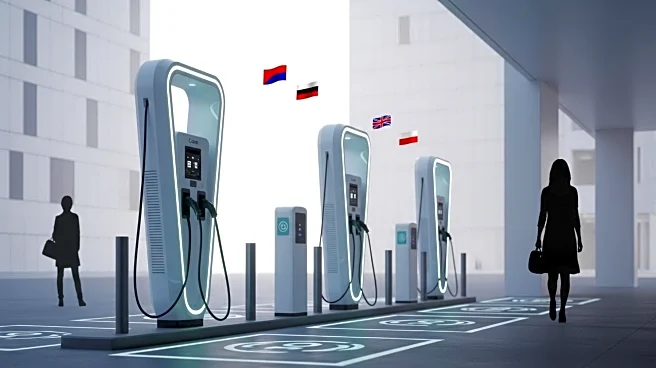What's Happening?
The federal EV tax credit in the United States is set to end, requiring buyers to have a binding contract in place by September 30. This has resulted in a significant increase in electric vehicle (EV) sales as consumers rush to take advantage of the tax credit, which offers up to $7,500 for new EVs and up to $4,000 for used ones. The Republican tax and spending package passed in July accelerated the end of these credits. According to industry experts, EV sales have surged in recent weeks, with Cox Automotive forecasting a 21.1% increase in EV sales for the third quarter compared to the same period last year. J.D. Power reports that EV sales accounted for over 11% of the U.S. market in August.
Why It's Important?
The expiration of the federal EV tax credit is expected to impact the growth trajectory of EV sales in the U.S. The Rhodium Group estimates a potential reduction in sales by 16 to 38% due to the early end of the credits, compounded by changes in emissions rules. This development could affect automakers' strategies and pricing, as they may need to adjust to a market without the incentive of tax breaks. The surge in sales before the deadline indicates strong consumer interest, but the absence of credits may deter cost-conscious buyers in the future.
What's Next?
Automakers will be closely monitoring the 'natural demand' for EVs without the tax credit incentive. The industry may see a temporary slowdown in sales following the rush to purchase before the deadline. However, major automakers continue to invest in EV technology, driven by competition and the appeal of low-maintenance vehicles. The long-term impact on the market will depend on how automakers adapt their pricing strategies and whether new incentives or policies are introduced.









